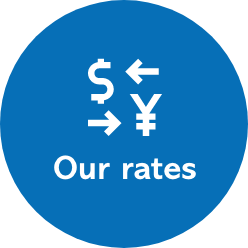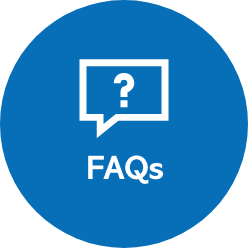Avoiding Identity Theft and Card Fraud Whilst Abroad
The dark web provides plenty of support for criminals seeking innovative ways to access your mobile phone or swipe your card or bank information. Better be safe than sorry is well worth remembering before and during your foreign trip. Watch out for two specific types of financial fraud no matter where your journeys take you; Identity Theft and Card Fraud
A. How to prevent identity theft
Identity theft: This is when someone assumes your identity to make fraudulent purchases, take out loans in your name, and use your personal information for malicious purposes. Other than potential financial damage, identity theft causes victims anxiety and fear around their personal safety.
1. Leave documents you don't need for your trip at home
Other than your passport, credit and debit cards, and medical prescriptions (if any), you may not need to bring along other documents that contain your personally identifiable information. When venturing out of your hotel, only carry your wallet and leave your passport and other travel documents in the hotel's safe.
2. Use public Wi-Fi or public USB chargers sparingly
While it's tempting to use free wifi at cafes, airports and restaurants, be careful about what you access online using public networks. Definitely avoid logging in to your bank account or work email on unsecured networks. Install a VPN app on your laptop, phone or tablet. A VPN encrypts the internet traffic between your device and the VPN server, preventing anyone using the same Wi-Fi network from deciphering any data they might intercept. The same applies to public USB chargers which can use “juice jacking” to download data or upload malware to your device. Instead try to always plug your device into electricity using your own charger.
3. Delete your cookies and browsing history public computers
You can never tell how secure public computers are. Hackers can install extensions on computers or networks to access cookies. Although most web browsers store cookies in a secure way, a carefully laid plan where the bad elements access the computer you use can have consequences for your personal information. As a rule, avoid saving your usernames and passwords for services on your hotel's computer even if you plan to use the same system for the entirety of your trip. For your peace of mind, delete all cookies and your browser history on public computers. And remove your Gmail or other email account from the public system after logging out.
4. Identity Protection Services
Consider using an identity theft protection service that monitors your personal and financial accounts 24/7, and flags any suspicious activity. Make digital copies of your travel documents for quick access on Google Drive, Dropbox or another cloud service. Also keep a hard copy of the documents with a family member or friend who you can reach to quickly put together the process to replace the stolen/lost documents.
In more challenging situations, to protect your personal and work email accounts against hackers, create a free email address for travel purposes only. Even if this account is compromised, the damage will be minimal or nil.
5. Don’t click on suspicious text messages
This may sound obvious, but some of these messages have become extremely convincing. You might get a text from the local government, the local phone company or you get an SMS saying you’ve won a reward for paying at that famous restaurant you just dined at. You click on the link to claim your reward or provide your personal details so your prize reaches only you. Unknown to you, a spyware is downloaded to your phone or your reply reaches thieves who can now misuse your personal information. As a broad rule, delete or block text messages from unknown sources.
B. Avoiding credit card fraud
Credit card fraud: Stealing your details or skimming is a popular technique to secretly swipe credit and debit card information. Malicious criminals can install a skimming device over the regular card reader to capture the details on the card's magnetic stripe or microchip. Scary, right? The good news is that it is often easy to spot the warning signs.
1. Never leave your cards and passport out of your sight
One way debit and credit cards are compromised is when their details are simply copied by thieves at hotels, restaurants and popular tourist places. It’s just as easy to copy your passport information to create a counterfeit. Never let your identity papers or cards out of your sight, if they need to take a copy make sure it is for the right reasons. The Payment Card Industry Data Security Standard (PCI DSS) forbids hotels from storing guests’ credit card details after authorisation. In other words, hotels are liable for ensuring the safety of the credit card information they collect from you. That said, when you check-out, ask your hotel to destroy your card details.
2. Set up Alerts and Monitor your Accounts
Many banks and credit cards will send your mobile phone alerts for unusual activity. Make sure that you are set up for this and can access your accounts remotely via an app. That said, you may need to also alert your bank in advance if you are travelling as many will block your cards and leave you without the ability to buy anything if they think it is unusual for you to be in another country. Proactively review your account activity for any purchases you don’t recognize.
3. Look for signs of card skimmers
Is the card machine in a shop directly connected to the terminal or is there anything suspicious between the two that might be gathering the data near the pin pad? Is there a video camera in shop looking at you as you enter your code? Does the card reader protrude from the panel of an ATM? It could indicate that a skimmer has been installed over the card reader. Any extra part or unusual addition to the mouth of the ATM should be regarded suspiciously. If in any doubt, pay with cash.
4. Recognize phishing attempts
Traveling puts you in a light mood and you have enough distractions to worry about the mundane things in life. But when you get an email requesting your credit card details for what sounds like a legitimate purpose, it’s important to keep your wits about you. It helps to do a quick check on the incidence of credit card fraud in your destination and ignore suspicious emails you receive during your trip.
5. Buy an NFC Shield for your Cards
Criminals can simply steal money from your cards by scanning them as you walk or in a crowed place, without ever having to remove the cards from your pocket. They use a similar scanner to the one in shops where you can tap your card and pay without needing to have your pin code. Often they might only take a small amount (perhaps the equivalent of a few dollars) so you are unlikely to spend time investigating and reporting the theft. Buying a NFC blocking card will defend you against these unscrupulous attacks, and never put your card or wallet down even in a shop.
Have some cash with you
In general check your credit card statement over a secure internet connection or app from time to time. If there are unauthorized charges, intimate your issuer and bank immediately. Remember your card will get blocked and you will need to pay in cash or other payment method.
A balance between cash, digital and card payments for services does its bit to prevent the overexposure of your credit and debit cards. You can stop by a Change Group branch at your travel destination or order online. We have a presence in 37 cities around the world.



